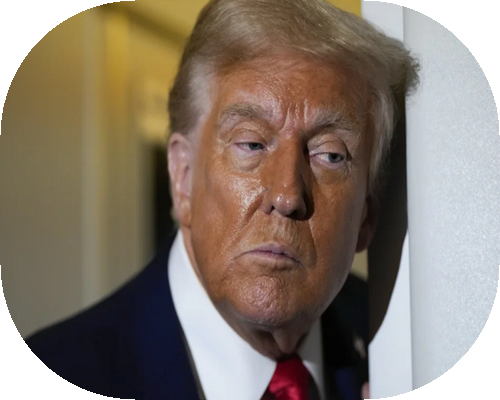Ranked Choice Voting (RCV) might be OK for primaries, but it should never be used for general elections because it is inherently unfair. Also, contrary to the claims of its advocates, RCV would not necessarily lead to more “moderate” candidates.
Under RCV, voters who pick the ultimate winner as their first choice only get to vote once, but voters who choose a loser as their first choice get to vote more than once. This is inherently unfair because it gives some voters multiple votes in a single race while others only get one.
It seems especially egregious to show the most favoritism to voters who preferred the least popular candidates. Why should voters who choose poorly get more votes than those who choose well?
Why should voters who prefer less popular parties, like the Greens or Libertarians, get to vote more times than Democrats and Republicans? They should not, and that is why Americans, and especially Republicans, should be very wary of Ranked Choice Voting.
Not surprisingly, advocates of Ranked Choice Voting rarely mention its drawbacks. They usually focus, instead, on the claim that Ranked Choice Voting would eventually spur political parties to run more “moderate” candidates. Those candidates would likely be ranked as a second choice by opposing party voters and, therefore, more likely to win if a second round of voting is required.
Ranked Choice Voting, however, would not necessarily lead to more moderate candidates. First, for RCV to work, there must be at least three candidates per election. How could that be guaranteed for each race? Would election laws have to be changed, and if so, in what ways?
For example, would parties be allowed to run more than one candidate per office? If so, how many? It’s not hard to see how this might increase, not decrease, the number of candidates who run for office when one considers the difference between pretending to be moderate and actually being moderate. It would also mean that voters would not have to choose an opposingparty candidate as their second choice, eliminating the incentive for “moderation.”
If political parties cannot run multiple candidates simultaneously in the same election, then Ranked Choice Voting might spur major political parties to create additional, ostensibly unrelated parties to give them more de facto candidates. For example, a contest with a Democratic candidate, a Socialist candidate and a Green Party candidate all running against a lone Republican would give the progressives an unfair advantage.
Once in office, Democrats, Socialists and Greens would almost always vote together against Republicans. Would Republicans be capable of forming sufficiently popular allied parties of their own to counter the many progressive party candidates? Or would they become perpetually disadvantaged under Ranked Choice Voting?
Of course, smaller parties might emerge on their own without major party backing. Their candidates might not be able to get on the ballot, however, if they are required to get some minimum number of signatures on a petition allowing them to run.
Under RCV, would election laws be altered or eliminated to make it easier for fringe candidates to get on the ballot in an effort to make sure that there would always be at least three candidates per race? If so, that might increase the number of fringe candidates who get elected.
Granted, much depends on how RCV is implemented. Nevertheless, for general elections, Ranked Choice Voting will always be a bad idea whose time should never come.
How useful was this article ?
Click on a star to rate it!
Average rating 0 / 5. Vote count: 0
No votes so far! Be the first to rate this post.
We are sorry that this post was not too useful for you!
Let us improve this post!
Tell us how we can improve this post?















6 thoughts on “Opinion: Ranked Choice Voting is Unfair and Potentially Dangerous – Inside Sources”
“[RCV] is inherently unfair because it gives some voters multiple votes in a single race while others get only one.”
The above quote seems to be your main argument against RCV. There may be valid arguments against RCV but that is not one of them. All voters who rank candidates get the same number of votes. Only those who decide not to rank – their choice – may get fewer votes.
Assuming no candidate gets a majority initially thus ending the election, in each subsequent round all voters who ranked get in effect another vote. Whether that vote goes to the same or a different candidate in each round does not mean the number of votes you get is different than any other voter who ranked. All voters get the same number of votes. One might argue that those who do not rank are treated unfairly because they might not get votes in later rounds. But that’s their choice – not unlike those who don’t vote at all – and that’s a very weak argument.
Hi Preston Brown, you’re a genius, quite the opposite of Mark Burton. In RCV each person’s vote only counts once. RCV elects the most liked candidate across the board with each vote only counting once.
Now moving on from the benefits of RCV to the fallacies of Mark Burton.
1. Your hairline is absolutely atrocious. Once it recedes past a certain point just shave your head and be done with it.
2. Pick up a thesaurus and learn some new words. “Inherently unfair,” which RCV plainly isn’t, is used twice, in the first two paragraphs!
3. The Democratic majority that emerges under RCV is seen as something frightening and unjust to you, yet polls show that 46% of Americans identify with the Democratic Party, whereas only 25% are Republicans. Since I highly doubt your ability to do basic math that means that almost twice as many Americans are Democrats as Republicans at 21% more.
In conclusion this article is complete bogus and you should find a new job, preferably in the fast food industry.
Hi Mark Burton,
As my original comment containing targeted profanity and insults was removed, I have created a clean, safe version for others to read. Enjoy:
As the very well spoken individual above me has said, your whole argument is based off an incorrect assumption. Just because ranked choice voting (RCV) allows voters to select multiple candidates does not mean that they “get to vote more than once”. The final vote tabulation, the one which actually counts, only utilizes their final vote. FairVote supports this, stating that “Voters aren’t casting a ballot for more than one candidate. They are expressing their preferences and only their choice in the final round of tabulation counts toward the results.” (Shaw Griffiths, 2018). Everyone under RCV has only one final vote. If this were not the case, RCV would not be legal under the United States constitution as it would violate the “one man, one vote” principle established in Baker v. Carr. But since it is the case, there have been multiple court cases affirming its constitutionality, including Stephenson v Ann Arbor Board of Canvassers (1975) and Minnesota Voters Alliance v City of Minneapolis (2009), among others.
Mark, having refuted your only (pathetic) point, I’ll now provide some of the many benefits of ranked choice voting. Note that this is far from a complete list, and if I wrote all of them down, I’d be here all night. To anyone reading these who is skeptical of these claims I am happy to provide several sources to back them upon request.
1. Increases the diversity of politicians as it promotes minorities and women.
2. Promotes more 3rd parties that typically would be overshadowed by the Democratic and Republican parties
3. Maximizes democracy in elections by minimizing the need for strategic voting and giving voters more freedom to accurately reflect their complex ideologies.
4. Saves money by eliminating the need for costly runoff elections.
5. Discourages negative campaigning by politicians, creating campaigns that focus more on policy issues and less on the politicians.
6. Increases voter turnout, as voters feel more fulfilled by the election process.
If anyone would like to contest these points, or bring up any opposing contentions, I would be more than happy to engage in a spirited, respectful, evidence-supported debate with you.
Ah, I have realized that I missed a spot. I have written “having refuted your only (pathetic) point”. This is an accident, one which I had intended to remove. Please disregard the parentheses.
Mr. Brown,
Your comment was not removed, it just hadn’t been approved yet.
Hi Mark Burton,
As the very well spoken individual above me has said, your whole argument is based on an incorrect assumption. Just because ranked choice voting (RCV) allows voters to select multiple candidates does not mean that they “get to vote more than once”. The final vote tabulation, the one which actually counts, only utilizes their final vote. FairVote supports this, stating that “Voters aren’t casting a ballot for more than one candidate. They are expressing their preferences and only their choice in the final round of tabulation counts toward the results.” (Shaw Griffiths, 2018). Everyone under RCV has only one final vote. If this were not the case, RCV would not be legal under the United States constitution as it would violate the “one man, one vote” principle established in Baker v. Carr. But since it is the case, there have been multiple court cases affirming its constitutionality, including Stephenson v Ann Arbor Board of Canvassers (1975) and Minnesota Voters Alliance v City of Minneapolis (2009), among others.
Mark, having refuted your only point, I’ll now provide some of the many benefits of ranked choice voting. Note that this is far from a complete list, and if I wrote all of them down, I’d be here all night. To anyone reading these who is skeptical of these claims I am happy to provide several sources to back them upon request.
1. Increases the diversity of politicians as it promotes minorities and women.
2. Promotes more 3rd parties that typically would be overshadowed by the Democratic and Republican parties
3. Maximizes democracy in elections by minimizing the need for strategic voting and giving voters more freedom to accurately reflect their complex ideologies.
4. Saves money by eliminating the need for costly runoff elections.
5. Discourages negative campaigning by politicians, creating campaigns that focus more on policy issues and less on the politicians.
6. Increases voter turnout, as voters feel more fulfilled by the election process.
If anyone would like to contest these points, or bring up any opposing contentions, I would be more than happy to engage in a spirited, respectful, evidence-supported debate with you.
Comments are closed.